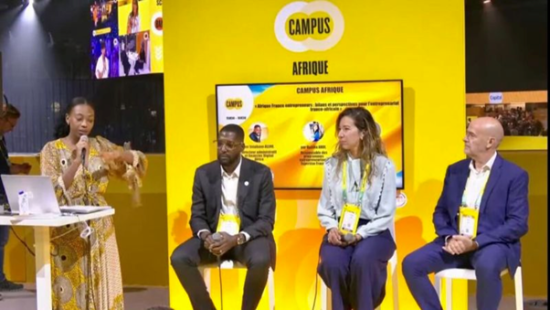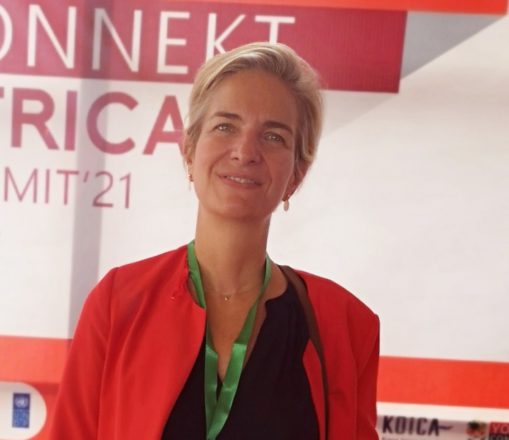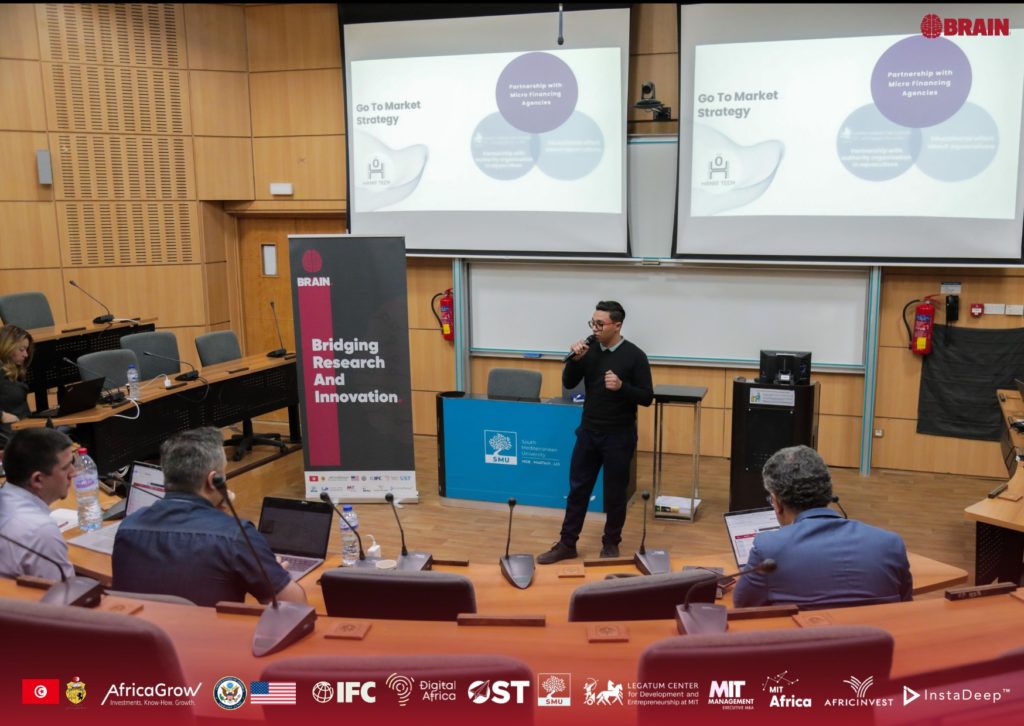
Can you tell us about Open Startup Tunisia (OST) and its missions?
Houda Ghozzi:
OST was founded in 2016. It is an NGO whose mission is to support innovation ecosystems in the MEA region, particularly in emerging economies such as Senegal, Tunisia, Morocco and Côte d'Ivoire. We support these ecosystems by creating educational programs with players such as Columbia University and MIT, as well as a range of partners interested in building skills in Africa: Africa Grow, IFC, the US Embassy, Digital Africa, Africinvest and Instadeep.
The segment we serve is essentially the early-stage entrepreneur, whether in tech or deep tech. We also support the muscle around entrepreneurs, such as coaches and business angels.
How did the partnership between OST and Digital Africa on the Brain program come about?
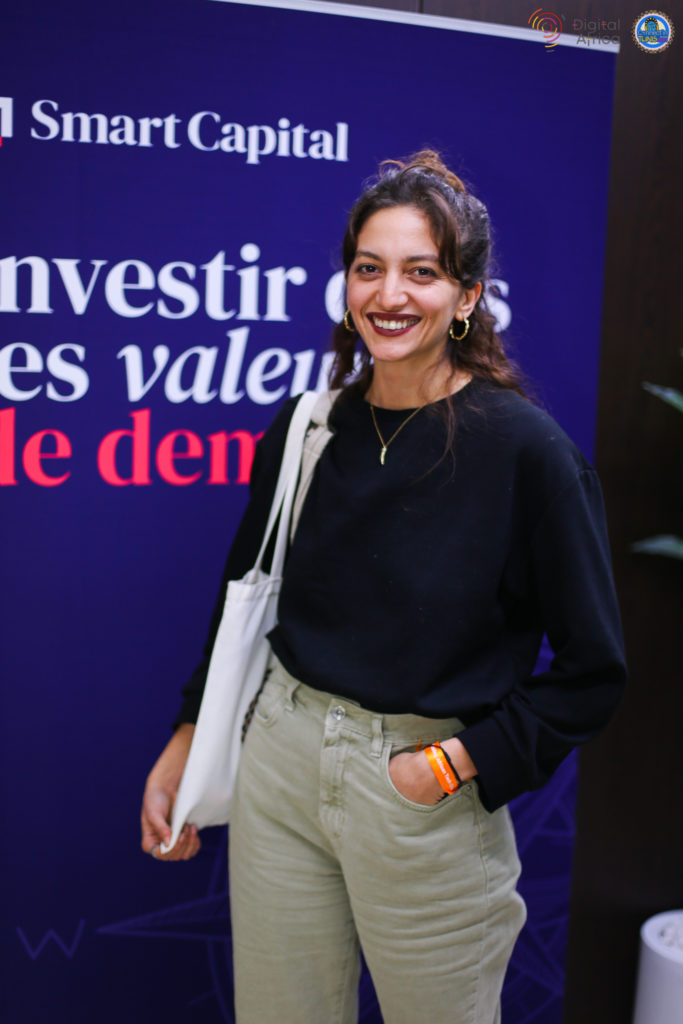
Malek Lagha :
This program was born out of an observation made thanks to Digital Africa's roots in the pan-African tech ecosystem. We found that there are very few entrepreneurship projects based on scientific research on the continent.
And although there are fewer such projects in Africa than on other continents, there is a crying lack of structures, educational approaches and resource tools to turn a product resulting from scientific research into a viable business within five years.
In response to this problem, we decided to launch a project focusing on scientific profiles in Africa. We carried out a qualitative study to map the key players in the ecosystem that supports startups created by researchers in Africa, and we identified several challenges, two of which are the following.
"We identified Brain as a unique initiative, made in Africa, with promising results in Tunisia and real potential in Africa and internationally”
Firstly, there is little support. Secondly, there are many difficulties in accessing resources, as well as a lack of synergy between the various key players in the deeptech ecosystem, entrepreneurial activity and research. But if there is synergy, we can source these projects and optimize support to meet the very specific needs of African researchers.
As a result of this study, we identified 'Brain' as a unique initiative, made in Africa, with promising results in Tunisia and real potential in Africa and internationally.
We therefore joined forces with OST Tunisia, the program's lead partner, and MIT, an existing partner, to scale up Brain and, above all, to push for its pan-Africanization.
Specifically, how will this partnership work, what are the objectives and the roadmap?
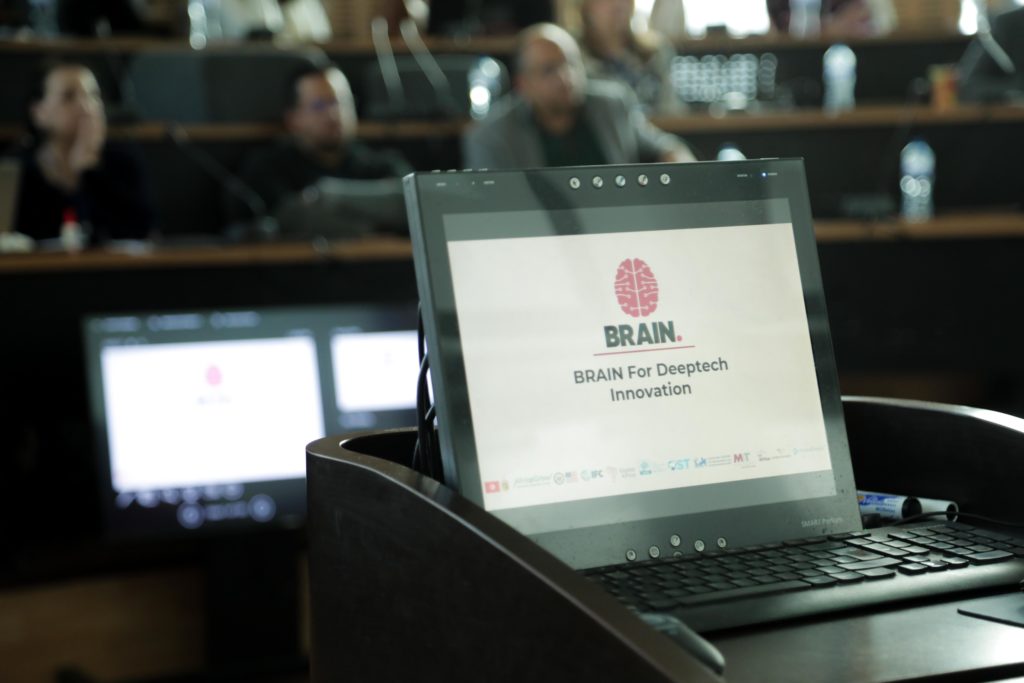
Houda:
Brain is a holistic project. You can't do deeptech and build a deeptech ecosystem just by "educating". To build an ecosystem, it's a machine that first needs inspiration. We had to inspire the scientists to say "we can do this". Then we need to define a training program, a base of coaches, an international outlook, access to complementary talents, support structures, investors...
Because no ecosystem can function without a regulatory framework to govern it, in terms of protecting intellectual property and allowing researchers to devote time to developing their ideas...
Today, Brain is made up of 6 components articulated around our mission: (1) Inspiration (2) Training and mentoring (3) Access to talent (4) Access to support structures and funding (5) Regulation (6) Research. The richness of this mission is made possible in particular by the strength of our partners: MIT and Digital Africa intervene mainly in the education, regulation and research components. Africinvest is involved in training and financing.
The next step is a round table, the first of its kind in Africa, to be held in Tunisia on October 9 and 10. 40 people involved in deeptech around the world have been invited to write a white paper discussing the possible deeptech model(s) for Africa, to ensure that deeptech is made in Africa, for Africa. Digital Africa supported this activity with the aim of gaining a better understanding of the deeptech landscape and initiating an exchange with the various actors operating in Africa.
For the awareness components, videos featuring deep tech entrepreneurs, with a focus on women, to speak the language of the entrepreneur and try to popularize the exercise and show that it's possible.
In March, the BRAIN Bootcamp will bring together around twenty pan-African entrepreneurs, and we will set up our first bootcamp for the continent with MIT. We have to appreciate the trust that Africa Growth, IFC, the US Embassy and Digital Africa have placed in us. It's also a first for MIT, which for the first time has different departments involved: MIT Africa, the MIT Legatum Center for Development and Entrepreneurship, and the Idea Lab team and its Executive Education students. We strive to create an African lab within MIT to perpetuate the initiative and provide a dedicated corridor for innovative ideas made in Africa. We believe that Africa must be seen as a continent of the future, capable of producing deeptech solutions to the major challenges facing the continent.
Malek:
What you need to know is that we have identified several areas of collaboration between BRAIN and Digital Africa's capacity building activities. Therefore, we're supporting the coaching, events and research activities, and we're also ensuring the inclusivity of the program by monitoring the selection criteria and awarding prizes to the best female startups in the program. We also act as a catalyst and federator, linking the pool of BRAIN partners with European and African partners. Through our involvement in BRAIN, we aim to give visibility to 'made in Africa' startups at a pan-African, European and international level.
BRAIN 2023 will conclude in Tunis on October 9 and 10, 2023. Follow the pan-Africanization of the program from 2024!

